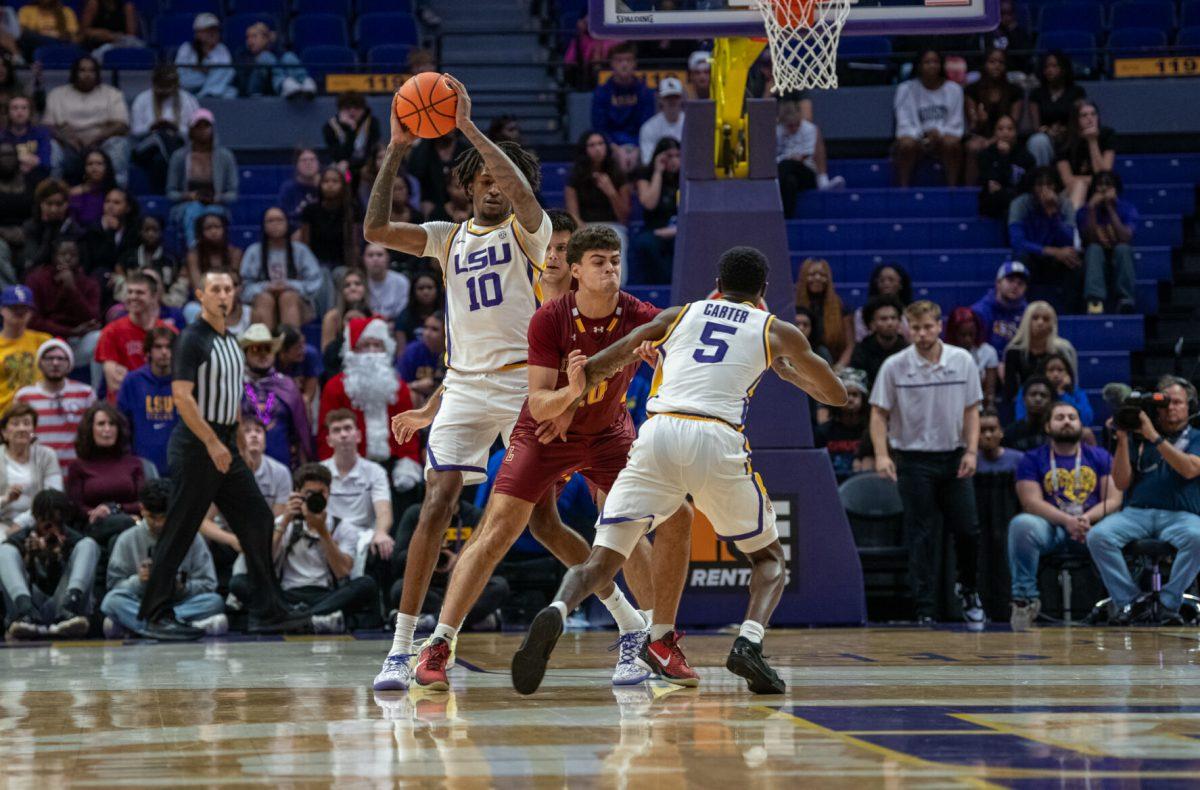Last Wednesday, numerous television crews and newspaper reporters descended upon the Union to cover a student town hall meeting about the Baton Rouge serial killer. They hoped to get as much information about the case, which is commendable and expected, but some ended up bullying officials about their own concerns.
In the process, many media outlets missed the real story. Rather than focus on students’ concerns about safety, most of the stories coming from last week’s town hall meeting focused on getting information from Baton Rouge Police Chief Pat Englade about DNA, which certainly is an important topic in the city during recent months.
Chief Englade certainly holds information reporters want to release in regard to the serial killer investigation. However, a reporter has more chances on a daily basis to speak with Englade than the average citizen, whose concerns may be less newsworthy than a reporter’s, but are terribly important to that person.
Baton Rouge residents, particularly LSU community members, needed to have a chance to vent their concerns and frustrations about an issue that has been hitting closer to home since the tragic death of LSU doctoral student Carrie Lynn Yoder.
The Reveille operated under this assumption when inviting Englade, Chancellor Emmert, LSUPD Capt. Ricky Adams and SG President Darrell Broussard to meet with students last Wednesday. We knew Englade’s presence would bring reporters, but we did not anticipate having television stations from New Orleans present at the event.
It seems that in the process of gathering and disseminating information about Baton Rouge’s serial killer, some media outlets are stepping over — or at times on — concerned citizens. One cameraman focused his lens at a woman for an extended period of time Wednesday night after she’d already ask not to be put on television. While the law allows media outlets to record people when they are at public events, decency says that in this case, recording this scared woman was in poor taste.
In the future, media outlets should remember not to trample on the public when covering public meetings. Informing the public, not pleasing an editor or producer or scooping someone else, is what journalism is about.
Rush to get story shouldn’t leave community behind
April 2, 2003




